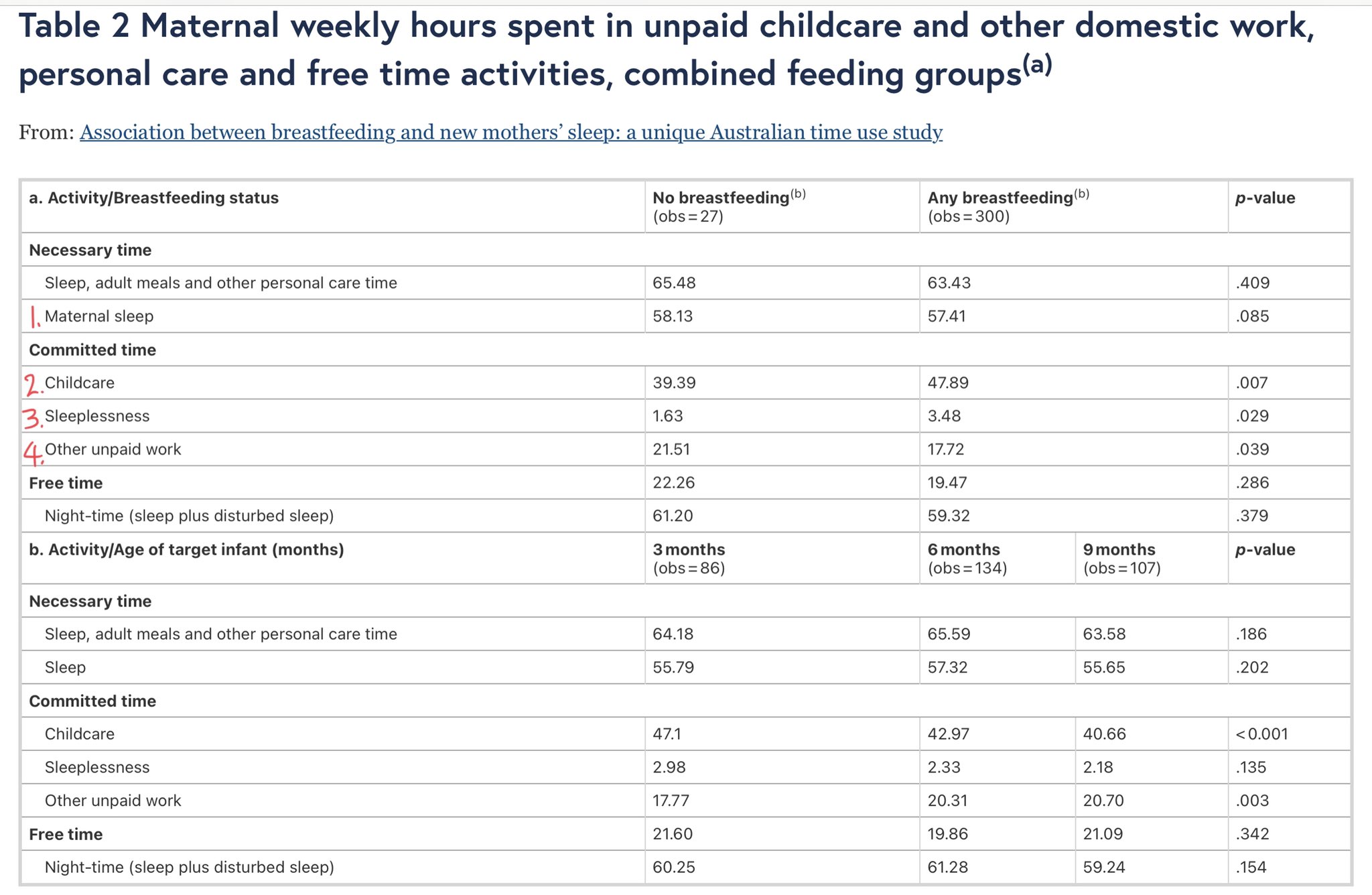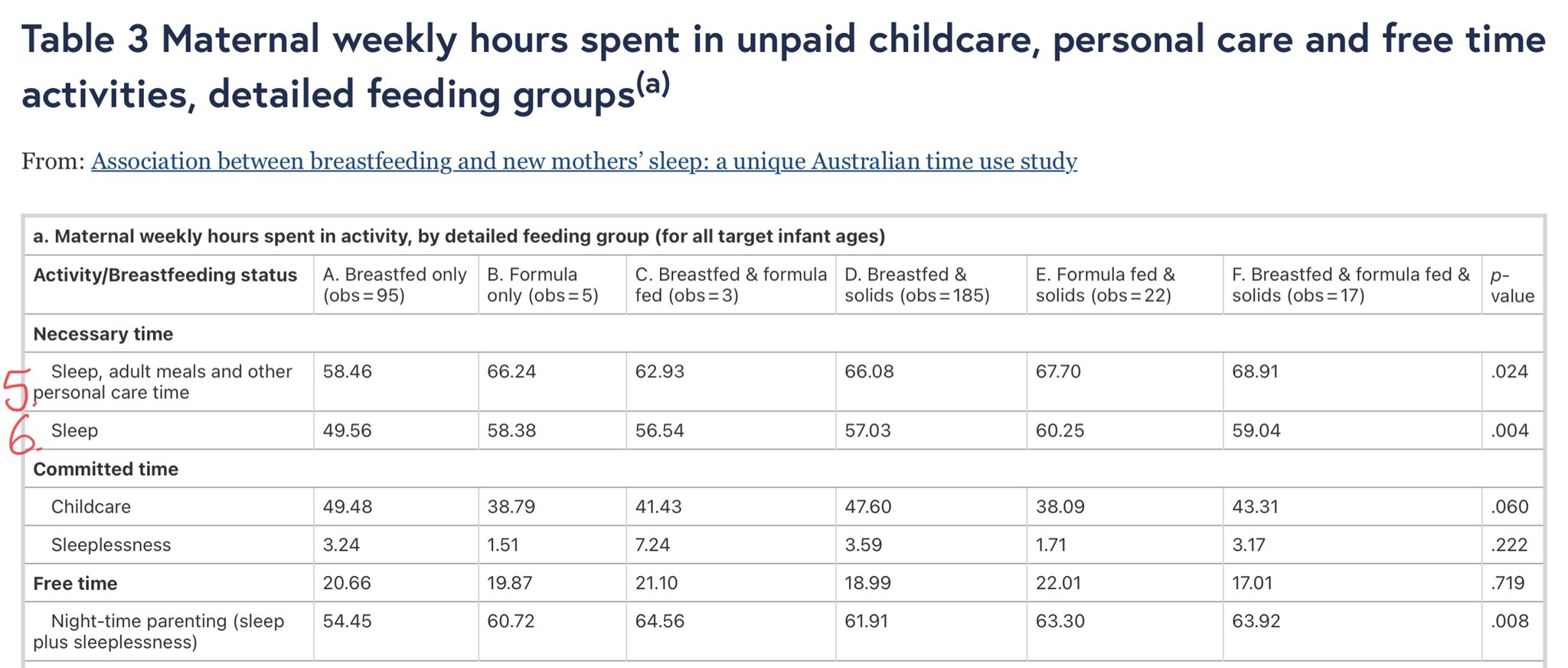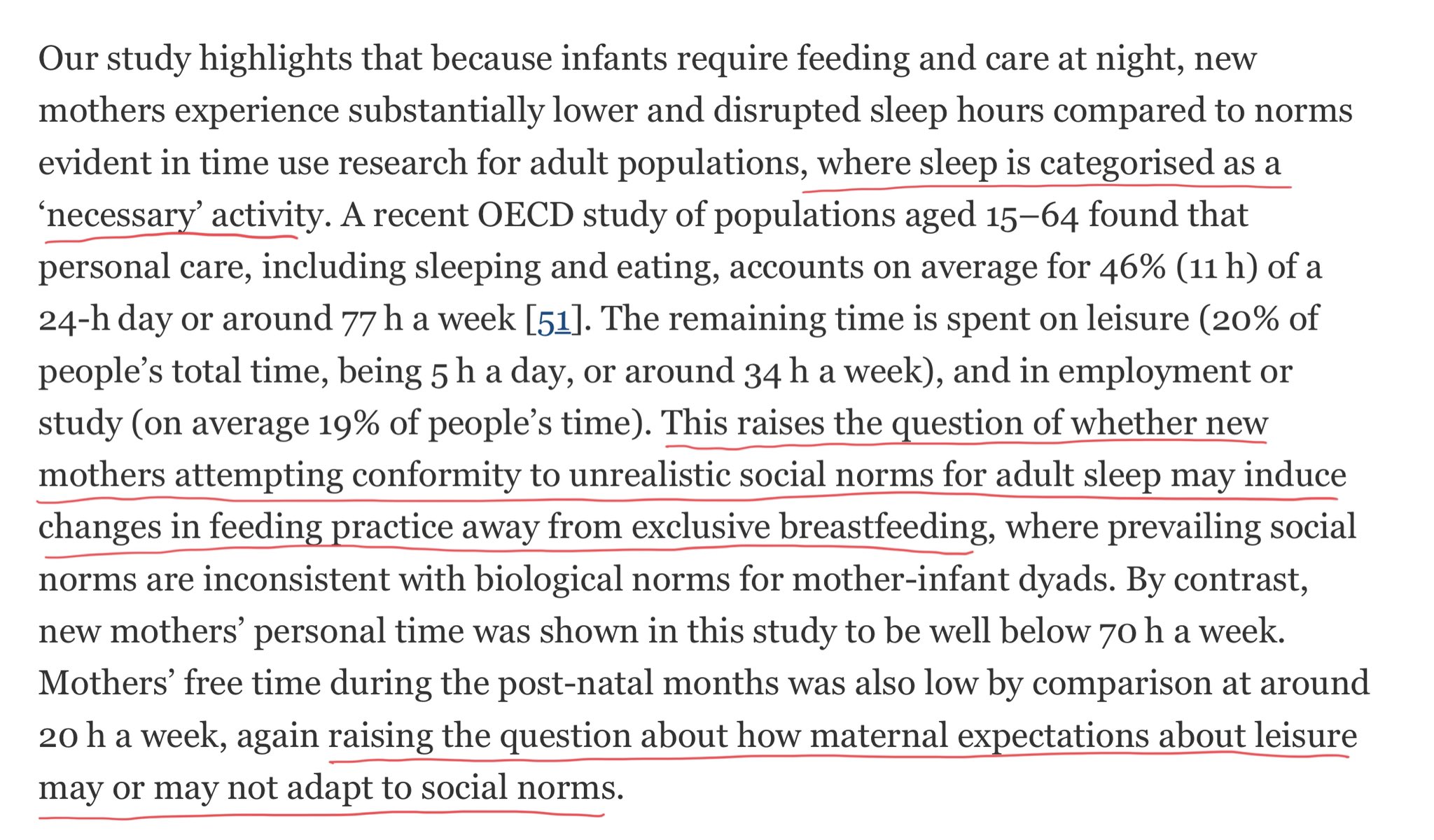This is another ‘notable’ paper about infant feeding. This time it’s an Australian study looking at feeding method and sleep.
The authors posit that breastfeeding is time intensive and disrupts maternal sleep, and therefore access to resources (time) may impact on infant feeding. They wanted to find out how much sleep a mother who intends to exclusively breastfeed should expect to get, so as to inform parents’ expectations.
They collected data from 162 women when their babies were aged three, six and nine months. They looked at associations between maternal sleep hours, feeding methods, domestic commitments, work commitments and free time for leisure or personal care. The results:
1. They didn’t find any effect of no breastfeeding vs any breastfeeding on overall sleep.
2. They did find that mothers who were breastfeeding did more childcare.
3. They did find that mothers who were breastfeeding spent more time awake at night.
4. They did find that mothers who were not breastfeeding at all did more unpaid work.

More detailed analysis showed:
5. Women who were exclusively breastfeeding had less personal time for sleep, adult meals and other personal care.
6. Women who were exclusively breastfeeding got less sleep overall.

But a word of caution: look at the numbers of women in each group. The vast majority of participants in this study are either exclusively breastfeeding or breastfeeding and giving solids but not using any formula. Is this representative of Australian women? Let’s not get tangled up too much in the actual data. We are far more interested in how this data is framed and how it has been interpreted.
The researchers are very concerned because babies need care and feeding at night (that is true regardless of feeding method, by the way). They are concerned that parents might be influenced by social norms that view sleep as a ‘necessary’ activity (inverted commas theirs).

They are concerned that social norms that view sleep as a ‘necessary’ activity might induce women away from exclusive breastfeeding (moreover, women these days apparently also expect some leisure time). At no point do the researchers consider what maternal sleep needs are. They don’t consider the impact of sleep disturbance on mothers’ health and emotional wellbeing. Nor do they acknowledge that some people are more resilient and others more vulnerable to sleep disruption.
So, we posit that health messaging should not merely focus on generating realistic expectations about the impact of feeding method on sleep disturbance. It should acknowledge that this is a real cost of breastfeeding – especially of exclusive breastfeeding – which needs to be weighed up when making feeding decisions. Ditto personal and leisure time. Families have competing demands, and individuals have different needs, tolerances and priorities. That is why we argue that decisions about how to feed babies need to be made by individual families for themselves.
Sleep disturbance should be considered an important health implication of infant feeding decisions for families to consider. And with that, we are off to enjoy the many well-established benefits of nighttime sleep!
This blog was adapted from a thread on Twitter.

